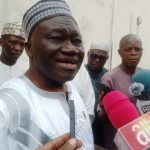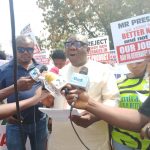More than half of Nigerians live in poverty – Says World Bank
By Bala Salihu Dawakin kudu On October 19, 2024
Poverty, Nigerians ,World Bank
The World Bank has highlighted the significance of the economic reforms introduced by Nigeria’s government under President Bola Ahmed Tinubu since May 2023.
These reforms, such as the liberalization of the naira and the removal of fuel subsidies, are aimed at revitalizing Nigeria’s struggling economy but have caused short-term hardship for many Nigerians. Inflation has surged to over 30%, and petrol prices have quintupled, exacerbating the challenges faced by the population, more than half of whom now live in poverty.
The World Bank noted that the proportion of Nigerians living below the national poverty line has risen sharply in recent years, jumping from 40.1% in 2018 to 56.0% in 2023. Various factors have contributed to this increase, including the COVID-19 pandemic, natural disasters like floods, growing insecurity, and economic policies such as demonetization. Urban poverty has also worsened, nearly doubling from 18% to 31.3%.
Despite these challenges, the World Bank projects that the government’s reforms will help stabilize inflation, with rates expected to decline to 14.3% by 2027. However, in the short term, inflation is likely to remain high, peaking at an average of 31.7% in 2024. The Bank emphasizes the need for continued efforts to alleviate the pressures on Nigerian households and businesses during this transition.












